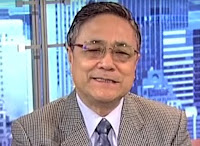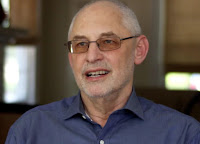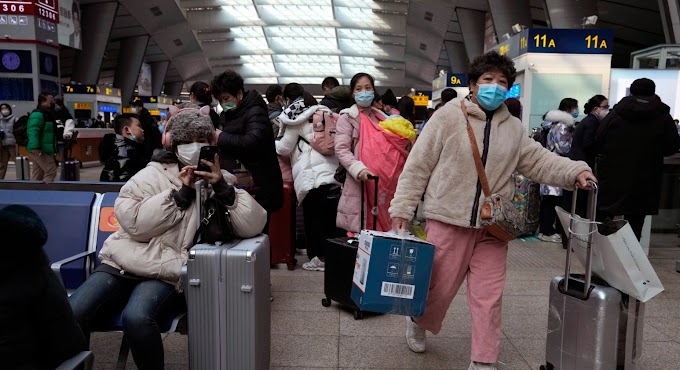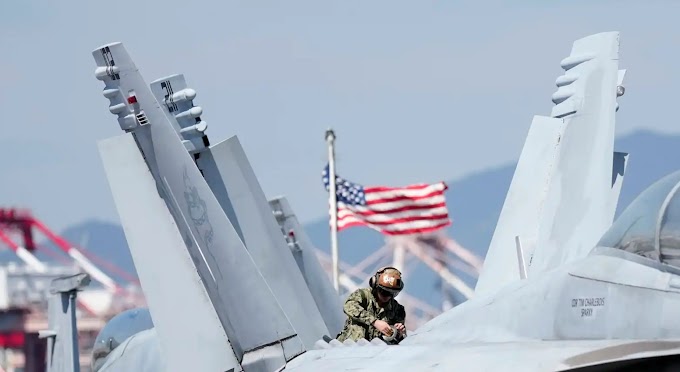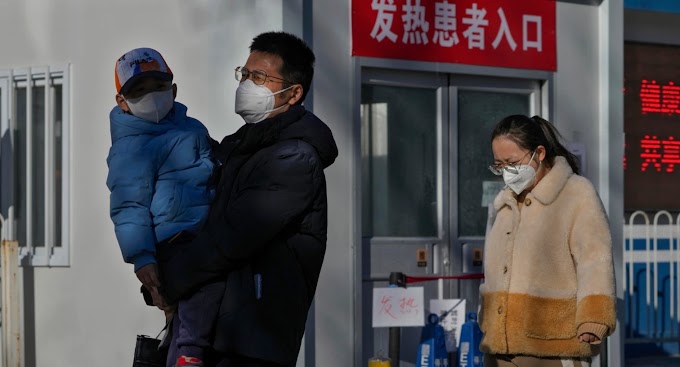Year-end report: Xi Jinping's summit of power and his unexpected challenge.
In the first half of 2022, the outbreak of the Russia-Ukraine war, the zero-clearing policy, and the economic downturn, the international and domestic environment is not favorable for Chinese President Xi Jinping, but these did not affect his exception to win a third term at the 20th National Congress of the Communist Party of China in the second half of the year , And then formed a team of Xi's Politburo Standing Committee that excluded other factions, and truly ascended to the pinnacle of power of "king of the world".
How on earth did he do it? Why is there no power in the party to check and balance him?
At the beginning of the year, two experts commented on China's political outlook. One said, "Everything is under Xi Jinping's control," and the other said, "All variables are possible." Looking back on the past year, the facts seem to prove that they have their own reasons. The former shows that Xi Jinping’s power is indeed unchallenged, and the latter proves that Xi’s high degree of centralization cannot avoid various accidents.
"Xi Jinping's biggest opponent is himself. There is neither talent nor trustworthy people around him. It is Wu Dalang who opens the shop, and those who are taller are not allowed to enter," Gao Wenqian said. If Xi Jinping completely overturns the established national policy of reform and opening up, his opponent will be even worse. Too much, "All the beneficiaries of the reform and opening up, whether they are ordinary people or senior officials in the party, will not agree, they are all his opponents."
The new Politburo Standing Committee announced at the First Plenary Session of the 20th National Congress seems to prove that what Gao Wenqian said is true. However, the content of the banner that Peng Zaizhou, a former warrior of the Sitong Bridge in Beijing at the 20th National Congress of the Communist Party of China, was instantly displayed in the thick smoke, only a little more than a month later, it became a common slogan at home and abroad protesting against Xi Jinping’s zero-clearing policy, and Xi Jinping was forced to insist on the three-year clean-up policy. The zero policy was abolished overnight, which also proves that although Xi Jinping has the ability to centralize power, it cannot guarantee that black swan-like accidents will happen at any time.
The most impressive scene of the 20th National Congress, and also the biggest unexpected event, maybe that Xi Jinping’s predecessor, Hu Jintao, the former General Secretary whom he praised as “high-minded and virtuous” because of his naked retirement, was invited out of the 20th National Congress in full view venue. This undoubtedly vividly explains in front of the world that "everything is under Xi Jinping's control", but it also seems to explain that "all variables are possible".
"The atmosphere at that time can only be described by the word 'threat'. Everyone was silent and did not dare to express any sympathy for Hu Jintao." said Gao Falin, an independent historian who once worked in the Central Committee of the Communist Youth League.
"He (Xi Jinping) knows that their buttocks are not clean, or I can make you unclean, because he has mastered the Central Commission for Discipline Inspection and Political and Legal Affairs Commission, as long as he sends people to check one by one." Song Yongyi, an expert on the history of the Cultural Revolution, said.
"In his (Xi Jinping's) view, the party is about to change color after so many years of reform and opening up. According to the original intention of the party, this change of color means betraying the highest ideal of the party, which is contrary to every party member's oath to join the party. He This logic can be used to restrain everyone, including Premier Li Keqiang," said Wen Guanzhong, professor emeritus of economics at Trinity College.
Standing on the moral high ground of saving the party and the country, through anti-corruption campaigns, weeding out political enemies who hinder his centralization of power, deterring potential challengers, and winning the support of the people who hate the rich and officials are the key to Xi Jinping's continuous consolidation and expansion of power.
Begin to eliminate the source of opponents at the beginning of taking office
Joseph Fewsmith, an American scholar and professor of international relations at Boston University who is considered to be the first to study Chinese elite politics, believes that Xi Jinping began to eliminate the source of all opponents when he came to power.
"He has launched a strong anti-corruption campaign against clearly vulnerable opponents, his big start with Zhou Yongkang and obviously Hu Jintao's aide Ling Jihua on the other side, these are all powerful figures in the party, and the military Xu Caihou and Guo Boxiong. If you can take down someone like that, who else can you not take down?"
In the five years of Xi Jinping’s first term, that is, from the 18th to the 19th National Congress of the Communist Party of China, through the anti-corruption campaign, one state-level official (Zhou Yongkang) and five deputy state-level officials (Ling Jihua, Sun Zhengcai, Su Rong, Xu Caihou, Guo Boxiong), 20 ministerial-level officials, and 130 deputy-ministerial-level officials.
The anti-corruption campaign enabled Xi Jinping to control the handles of knives and guns, cracked down on the factions of the Communist Youth League, broke the unspoken rules of succession through generations, and deterred potential opposition forces within the party.
"That was a display of political power like we haven't seen in recent years," Furschel said. By the time of the Nineteenth National Congress, "most of the members of the Central Committee were chosen by him."
Many experts predicted that at the 20th National Congress, Xi Jinping would still abide by the unspoken rules of the CCP’s top officials, but Fu Shizhuo always believed that Xi Jinping would not abide by it.
"Jiang Zemin, in my opinion, just broke the arrangement, he appointed all his people so that when Hu Jintao came to power, he was surrounded by all Jiang's people and could hardly do anything. So why should people believe that Xi Jinping will follow about the rules of ups and downs?" Fu Shizhuo said.
Even so, he did not expect that Xi Jinping would introduce a standing committee composed entirely of people loyal to him at the 201st plenum. "It's unprecedented," Furschel said.
Fu Shizhuo believes that Xi Jinping's approach violates the CCP's own tradition. "I think there's almost always some form of balance in the party. That's the norm, too."
During Deng Xiaoping's time, Chen Yun balanced him, "There was at least one different voice at the top of the party," he said. "Jiang Zemin had to deal with several voices that could change over time; Hu Jintao of course first had to deal with the fact that Jiang Zemin was still very active as chairman of the Military Commission for the first two years of his term, and Jiang remained a very powerful individual even after that."
Will the dictator apologize to the people?
Becoming a dictator is dangerous, Mao Zedong is a lesson from the past. His Great Leap Forward led to the Great Famine that killed tens of millions of people, and he launched the Cultural Revolution, which caused a large number of abnormal deaths, cultural and moral decline, and the economy was on the verge of collapse.
But "Xi Jinping wants to be the most powerful leader since Mao Zedong," said Ian Johnson, a senior fellow at the Council on Foreign Relations. "I think his (Xi Jinping's) main drive is also his ego, he believes he can do it, he thinks he is indispensable, he wants to rectify China, rectify the Communist Party, and save the Chinese people." Zhang Yan said.
"It's a lot like the temptation of dictators, because the temptation is, when you have power, you think I can do better than everyone else, so you start micromanaging a lot of things. Like Mao." Zhang Yan said.
Zhang Yan believes that a truly strong leader does not need to directly control everything. “Because if something goes wrong, you can’t blame other people. If you’re at the top and you’re in direct control of key policy, it makes you vulnerable if something goes wrong with the policy.”
Under the circumstances that the Omicron mutant virus has been proven to be less toxic around the world, Xi Jinping still insists on the zero-clearing policy; and when the people could not bear the strict epidemic prevention and control and protested, the authorities suppressed the protests on the one hand, and at the same time Suddenly announced the cancellation of the clearing policy.
"Xi Jinping's government has shown unusual responsiveness in effectively conceding to protesters' key demands at the same pace, reversing the unpopular 'clearing' policy." Claremont-McKenna College Government Professor Pei Minxin wrote in The New York Times.
Pei Minxin believes that now Xi Jinping has actually obtained an opportunity, which he called "the destiny" of Deng Xiaoping to clean up the mess of Mao Zedong's Cultural Revolution and lead China to the path of reform and opening up for economic development.
However, Pei Minxin believes that Xi Jinping's situation is different. "Deng Xiaoping was able to take advantage of the crisis because others (Mao Zedong and the Soviet Union) were blamed. Xi Jinping has invested a lot of political capital with him, but has killed the economy and caused rare It is not so easy to draw a line between the anti-epidemic policy of street demonstrations."
The New York Times reported that some people in China have proposed that “the government should admit that the strict zero-clearing policy was a serious mistake, and should apologize for the harm caused by the policy.”
The report quoted an article on WeChat by art historian and former CPPCC member Li Gongming, urging the Guangzhou municipal government that "the first step may not be separated from admitting mistakes, expressing condolences to the dead, and apologizing to the people. compensation."
Another article quoted by the report said, “For some health officials who lied and misled the country, an apology may not be enough, and they should be prosecuted.”
The author of the article also asked the government to count the secondary disasters caused by the “zeroing” policy, such as “suicides, deaths caused by delayed treatment or being rejected by hospitals, and accidental deaths related to the “zeroing” policy.”
But the report noted: “During its 73 years in power, the CCP has never apologized for any brutality suffered by the Chinese people under its rule.”
However, Pei Minxin believes that Xi Jinping has its "unique advantages" because "everything is under Xi Jinping's control" and "admitting major policy mistakes will not endanger his political life."
“No one knows whether Xi Jinping thinks he needs to turn around,” Pei Minxin wrote. "But if he does understand the recent protests, he must find that a renewed contract with the Chinese people may be crucial to preserving his own 'Mandate of Heaven.'"

